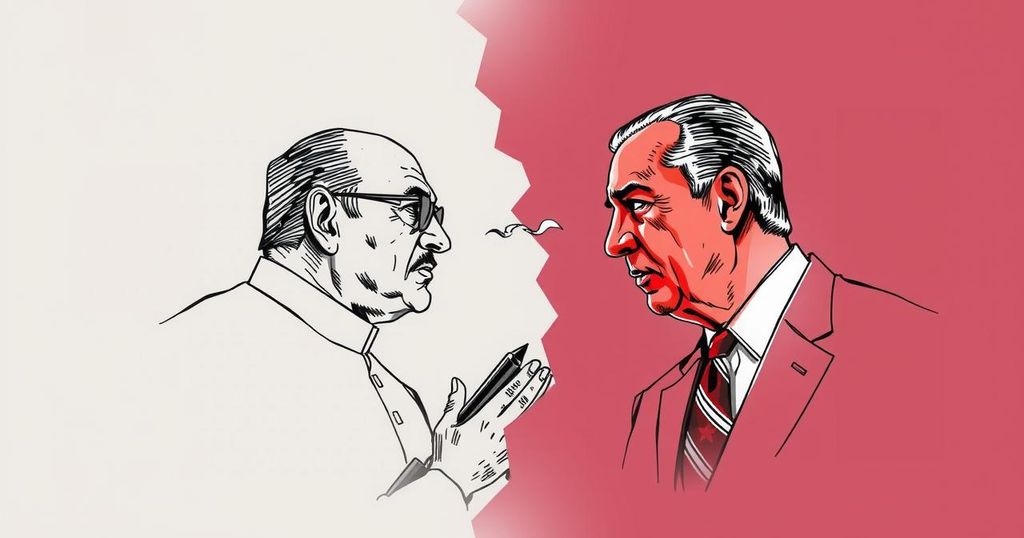Turkey’s Foreign Minister Hakan Fidan stated that Israeli military actions in Lebanon and Gaza are forcing Iran to take “legitimate steps”. During a press conference with his Iranian counterpart, concerns were raised about the potential for a wider conflict in the region due to ongoing tensions and military engagements. Both nations have expressed a desire to de-escalate but have warned of readiness to confront if necessary.
In a recent joint press conference held in Istanbul, Turkey’s Foreign Minister Hakan Fidan expressed concerns regarding Israel’s military actions in Lebanon and Gaza, stating that these aggressions are compelling Iran to undertake “legitimate steps.” Fidan remarked that Israeli Prime Minister Benjamin Netanyahu’s actions are instigating new conflicts in the region and endeavoring to entangle Iran in a wider war. He cautioned that the potential for the conflict to escalate across the Middle East should not be underestimated. Iranian Foreign Minister Abbas Araghchi, present at the conference, emphasized the unsettling situation in Lebanon and noted the serious possibility of war. He stated, “The possibility of war in the region is always serious, and no one other than the Zionist regime wants that to happen. We want to reduce tensions, but we are ready for any scenario.” Iran has been a staunch supporter of militant groups such as Hamas in Gaza and Hezbollah in Lebanon, particularly after incursions by Israel led to the deaths of key leaders from these factions. Additionally, Iran backs Houthi insurgents in Yemen, Shiite militias in Iraq, and the armed forces in Syria, referred to collectively by Tehran as an “axis of resistance” against Israel. The volatile situation escalated following Iran’s missile strike on October 1, which was in retaliation for the deaths of significant terrorist leaders earlier in the conflict. Following these events, Israel responded by targeting Hamas leaders, indicating an ongoing cycle of violence between the two nations. Notably, Iran’s Revolutionary Guards have warned of severe repercussions if Israel attacks Iranian assets.
The current geopolitical climate in the Middle East is marked by heightened tensions and conflicts, primarily involving Israel, Iran, and their respective allies. Turkey’s involvement reflects its desire to navigate regional instability while maintaining its diplomatic relations with Iran. Israel’s military campaigns against Palestinian and Lebanese groups have led to retaliatory actions from Iran, leading to concerns of an expanding conflict that could engulf neighboring countries. The so-called “axis of resistance” spearheaded by Iran represents a coalition of groups opposing Israeli actions, which exacerbates the risk of broader war in the region.
The statements made by the Turkish and Iranian Foreign Ministers underscore the precarious nature of the current situation in the Middle East. With Israel’s continued military actions provoking Iran and its allies, the potential for a wider conflict remains a pressing concern. Both Turkey and Iran express a commitment to reducing tensions, yet the readiness for confrontation reflects the underlying volatility of the region. This ongoing conflict not only has ramifications for the immediate parties involved but also for broader international peace and stability.
Original Source: www.voanews.com






